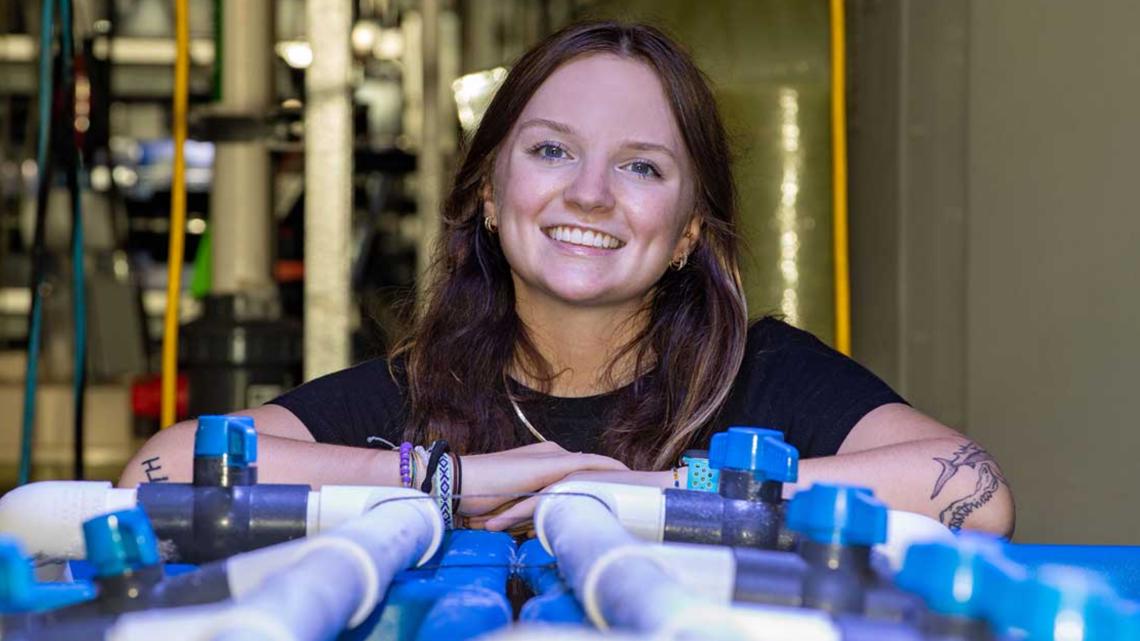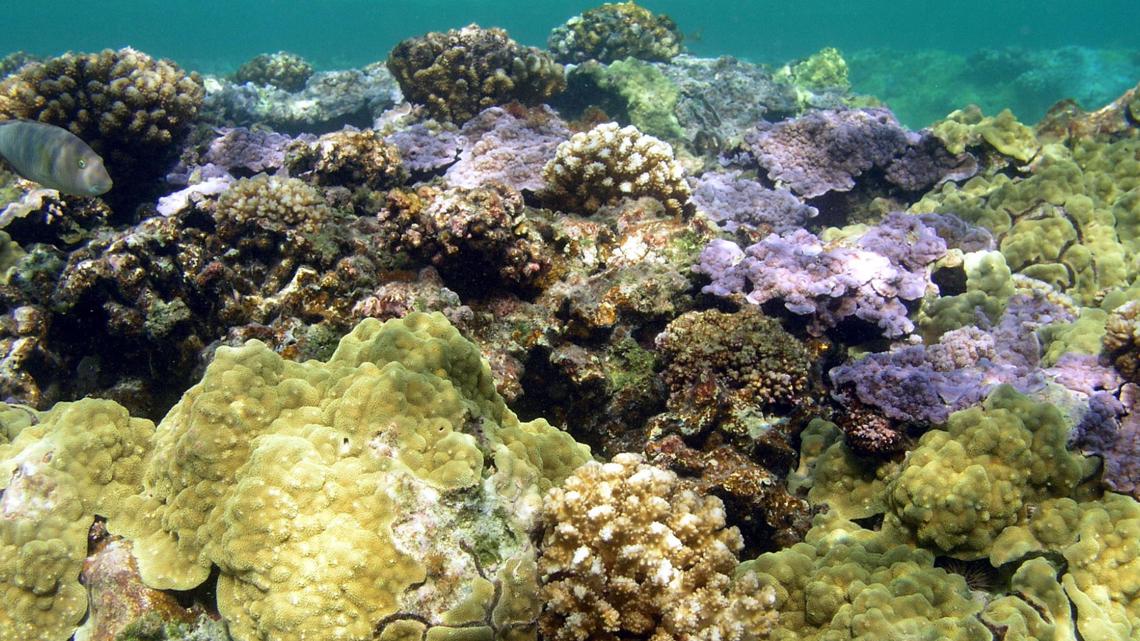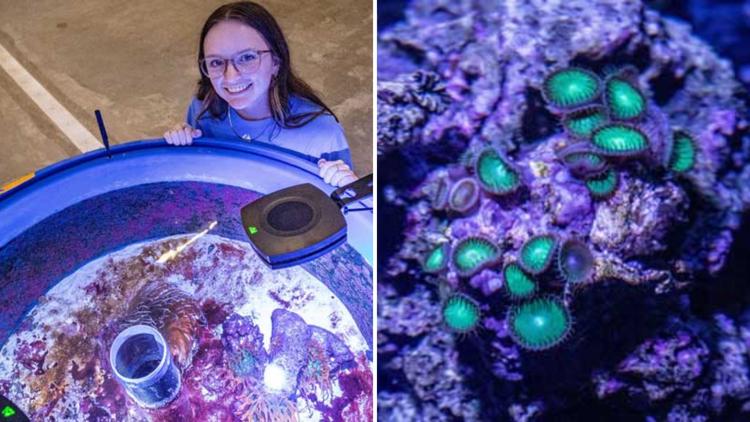CARBONDALE, Ill. — Coral ecosystems throughout the world's oceans are essential to countless water lifeforms, but they're increasingly facing several serious threats. An unlikely helping hand is coming not from the coasts, but from researchers at Southern Illinois University - Carbondale.
Nearly a thousand miles from the nearest ocean, the university is becoming a budding hub for marine biology studies with a focus on growing the "beautiful and sensitive" lifeform of coral to help save reefs across the world, a press release from the university said Wednesday.
"Scientists at SIU’s Center for Fisheries, Aquaculture, and Aquatic Sciences came up with the idea to grow coral, an invertebrate animal, about a decade ago, just as construction was beginning on the initial phase of the Saluki Aquarium in 2012," the press release said.
The aquarium currently houses about 10,000 gallons of research and display tanks, with officials hoping to add another 9,000-gallon marine display and teaching aquarium soon.
Coral, considered animals, were originally grown at the university to understand interactions between freshwater and saltwater better, but researchers said it could also help improve methods of providing ornamental coral used in private aquariums, which would help decrease pressure on natural coral reefs.
“I am working on looking at coral health implications with varying flow rates by observing morphological features and observing microbial colonies that make up the corals’ gut,” said Ashlynn Shea, a junior in zoology and president of the Saluki Reefers registered student organization. “These microbes help feed the corals to survive and thrive in an ecosystem.”


Around 500 million people worldwide depend on the habitats coral reefs create for their food and livelihoods, with 30 million almost totally dependent on them, according to the National Oceanic and Atmospheric Administration (NOAA).
A large threat to those reefs is the enormous ornamental coral market for private aquariums, according to SIU’s Center for Fisheries, Aquaculture, and Aquatic Sciences Director Jim Garvey.
“Only a fraction of corals is farmed, with the remainder harvested from reefs,” Garvey said. “We built the coral farm in the Saluki Aquarium to test both basic and applied questions about coral growth and survival to improve coral aquaculture and reduce pressure on wild reefs.”





